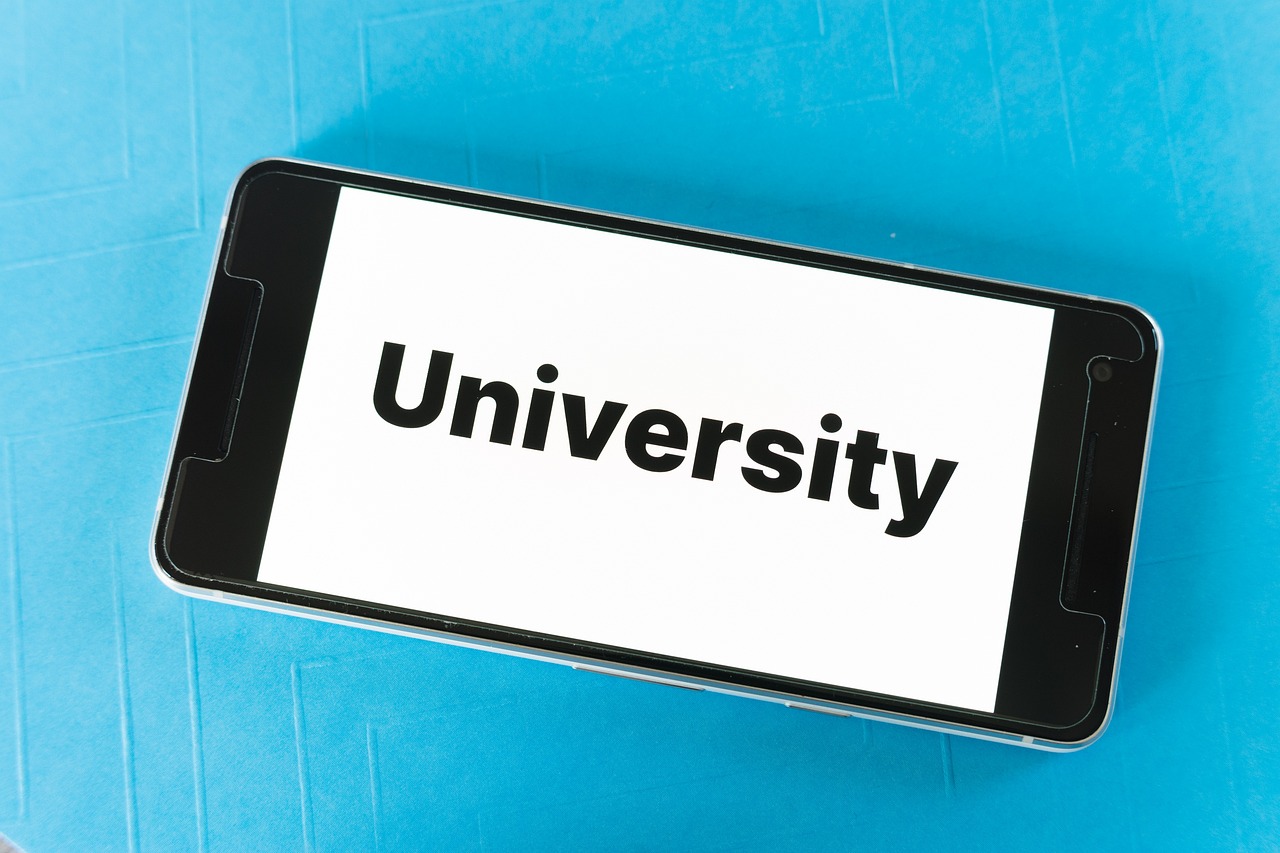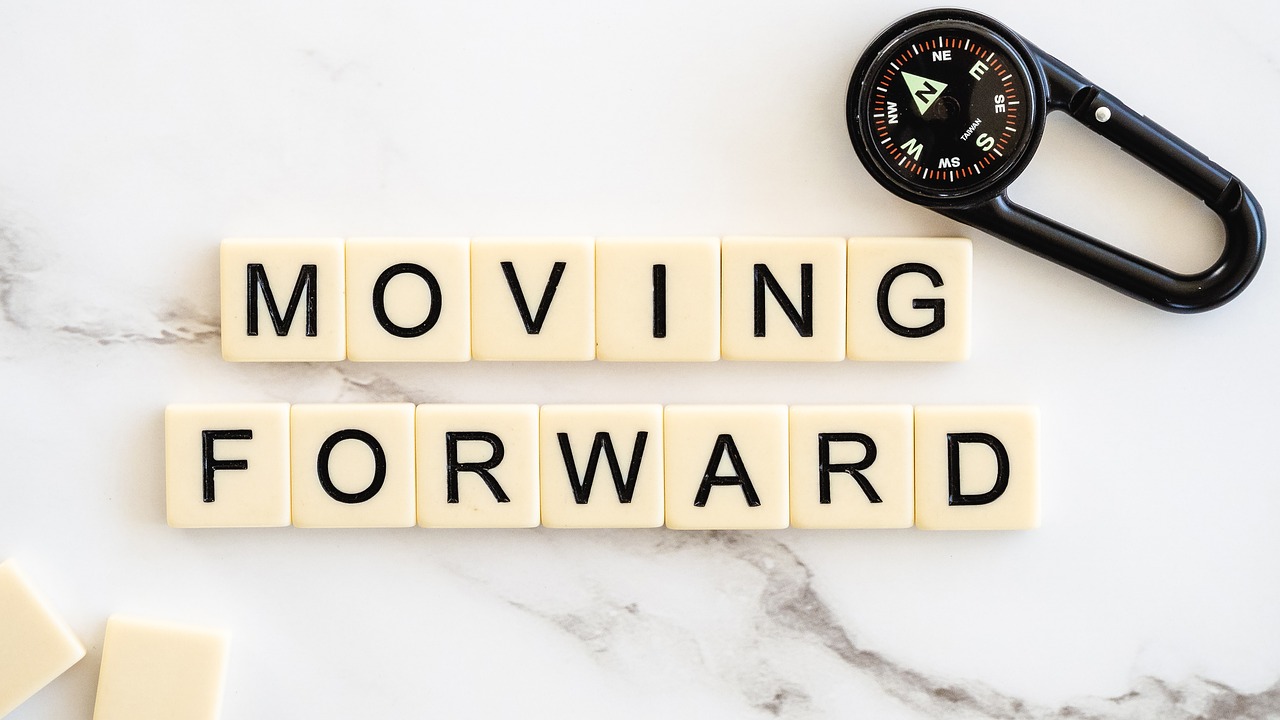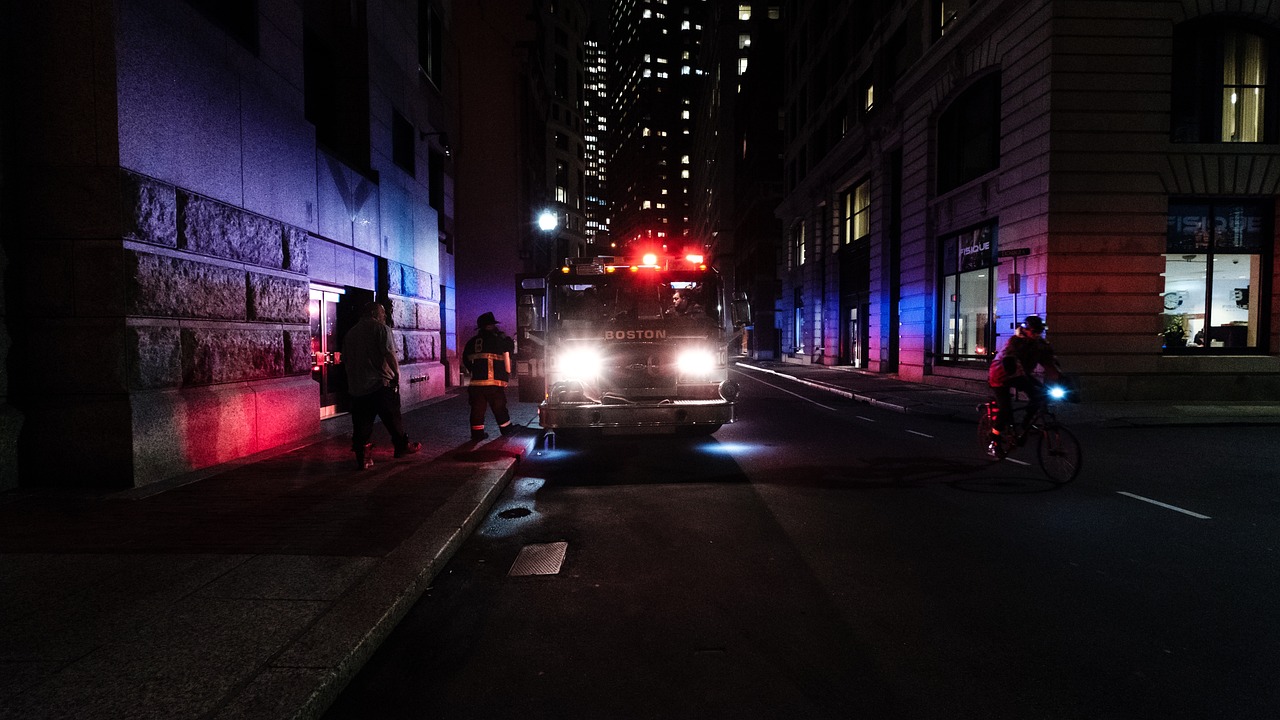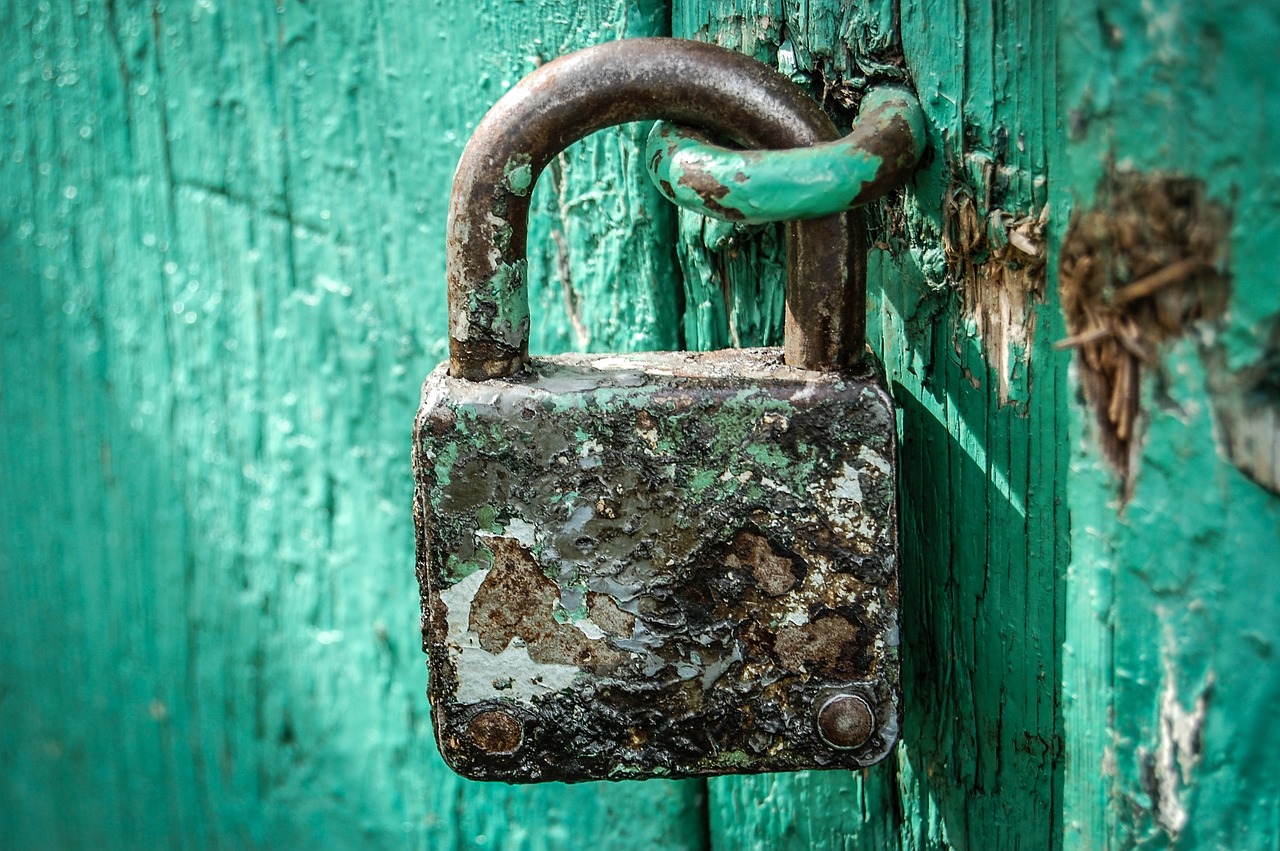Moving Abroad? Safety Tips to Consider
Moving abroad can feel like stepping into a new world filled with excitement and opportunities. However, it also comes with its own set of challenges and safety concerns. To ensure a smooth transition and a secure living experience in your new country, it's essential to arm yourself with the right information and strategies. Think of this as your personal safety toolkit, packed with tips and tricks that will help you navigate the unfamiliar terrain. So, whether you're relocating for work, study, or adventure, let's dive into some crucial safety tips that will make your move not just easier, but safer.
Understanding your new country is crucial for a successful move. Before you pack your bags, take some time to gather information about local customs, laws, and safety concerns. This research will not only help you feel more comfortable in your new environment but will also allow you to avoid potential pitfalls. Imagine moving to a place where you don’t know the local etiquette—awkward, right? Start by exploring online resources, joining expat forums, and connecting with locals on social media. Don't hesitate to reach out and ask questions; most people are more than willing to share their experiences and advice.
Familiarizing yourself with the legal system in your new country is vital. Every nation has its own set of laws, and what might be acceptable in your home country could be illegal in your new home. Ignorance is not an excuse, so take the time to learn about local regulations. For instance, driving laws, public behavior, and even social customs can vary widely. You wouldn't want to find yourself on the wrong side of the law simply because you weren't aware of a rule. Consider creating a checklist of important laws to remember, which can serve as a handy reference during your transition.
Navigating visa and immigration processes can be daunting, but it's a necessary step to ensure a legal stay in your new home. Each country has its own requirements, so it's essential to do your homework. Start by visiting the official government website of your destination to gather accurate information on the necessary documentation. This might include your passport, proof of financial stability, and health insurance. Don’t forget to check the processing times, as some visas can take months to approve. Prepare early to avoid any last-minute stress.
If you plan to work abroad, understanding work permit requirements is essential. Different professions may have different regulations, so it’s crucial to know what applies to you. For example, some countries require specific qualifications or sponsorship from an employer. Make sure to clarify what type of work permit you need and gather all necessary documents ahead of time. This way, you can hit the ground running once you arrive.
Securing long-term living arrangements in your new country often involves understanding residency regulations. Some countries offer various types of residency permits based on your situation—be it work, study, or family ties. Research the options available to you and the process involved in applying for residency. It can be a lengthy process, so patience and persistence are key. Consider consulting with a local immigration expert to help streamline the process.
Being culturally aware enhances your experience abroad. Respecting local traditions and customs is not just polite; it can foster positive relationships with your new neighbors and colleagues. Think of it as learning a new dance—you need to know the steps to join in gracefully! Take the time to learn about local festivals, dining etiquette, and social norms. This will not only enrich your experience but also help you avoid any unintentional faux pas.
Taking proactive safety measures is essential when relocating. Your personal safety should always come first, so it's important to familiarize yourself with your new neighborhood. Research crime rates and safe areas to live in, and don’t hesitate to ask locals for their insights. Establishing a routine can also help you feel more secure; know your routes, and familiarize yourself with nearby amenities like grocery stores, hospitals, and police stations. Remember, it's always better to be prepared than to be caught off guard!
Knowing whom to contact in emergencies is crucial. Compile a list of local emergency numbers and resources, including the police, fire department, and medical services. Keep this list handy—perhaps saved in your phone or posted on your fridge. Additionally, consider sharing your contact information with a trusted neighbor or friend. You never know when you might need a helping hand!
Securing your new home should be a priority. Start by changing the locks upon moving in, as you can never be too careful. Invest in basic security measures such as deadbolts, window locks, and a security system if your budget allows. Additionally, get to know your neighbors; a friendly community can act as a great line of defense. Remember, a secure home is a happy home, and taking these steps will give you peace of mind as you settle in.
- What should I do if I lose my passport abroad? - Immediately report the loss to your country's embassy or consulate and follow their instructions.
- How can I find a local doctor or healthcare provider? - Ask for recommendations from locals or fellow expats, or search online for reviews and ratings.
- What are the best ways to meet people in a new country? - Join local clubs, attend community events, or use social media platforms to connect with others.

Researching Your Destination
Understanding your new country is crucial for a smooth transition and a successful relocation. Before packing your bags, it's essential to dive deep into researching your destination. Think of it like preparing for an exciting adventure; the more you know, the better equipped you'll be to navigate the challenges ahead. Start by exploring the local culture, traditions, and social norms. This not only helps you fit in but also shows respect to the locals, which can go a long way in fostering positive relationships.
One of the first steps in your research should be to look into the local customs. Each country has its unique way of life, and what might be considered polite in one culture could be seen as rude in another. For instance, in some countries, greeting someone with a kiss on the cheek is normal, while in others, a firm handshake is the standard. Understanding these nuances can prevent awkward situations and help you blend in more seamlessly.
In addition to customs, it’s vital to familiarize yourself with the local laws. Laws can vary significantly from one country to another, and ignorance is not an excuse if you find yourself on the wrong side of the law. Researching regulations regarding public behavior, alcohol consumption, and even photography in public spaces can save you from unintentional violations. A simple misstep could lead to fines or even legal trouble, so it's better to be informed.
When you're researching, consider making a list of essential topics to cover:
- Local customs and traditions
- Legal regulations and laws
- Healthcare facilities and emergency services
- Transportation options and costs
- Cost of living and housing market
Another key aspect of your research should be understanding the safety concerns in your new destination. Look into crime rates in different neighborhoods, local emergency protocols, and any travel advisories issued by your home country. Websites, forums, and local expat groups can be invaluable resources for gathering this information. Connecting with people who have already made the move can provide insights that you won’t find in official documents.
Lastly, don’t forget to explore the cost of living in your new home. This includes everything from housing prices to everyday expenses like groceries and transportation. A simple table can help you visualize the differences:
| Expense Type | Your Home Country | New Country |
|---|---|---|
| Rent (1-bedroom apartment) | $1,200 | $800 |
| Groceries (monthly) | $300 | $250 |
| Transportation (monthly pass) | $100 | $50 |
By gathering all this information, you’ll not only feel more prepared but also more confident about your move. Remember, knowledge is power, especially when it comes to relocating to a new place. So, take the time to research thoroughly and set yourself up for success in your new adventure!

Understanding Local Laws
When you’re gearing up to move abroad, one of the most crucial aspects to consider is understanding the local laws of your new home. Think of it as learning the rules of a game before you play; without that knowledge, you might find yourself in some tricky situations. Each country has its own legal framework, and what might be acceptable in your home country could be illegal elsewhere. This is why doing your homework on local laws is not just a suggestion—it’s a necessity!
Start by diving into the legal system of your destination. Research the structure of the government, the judiciary, and how laws are enforced. For instance, some countries have strict regulations regarding public behavior, while others might have lenient laws. Knowing these nuances can save you from unintentional violations that could lead to hefty fines or even legal trouble. Make use of online resources, local expat forums, and government websites to gather accurate information.
Another vital aspect to consider is the visa and immigration requirements. Each country has its own set of rules regarding who can enter, stay, and work. For example, if you plan to stay long-term, you might need a specific visa. The documentation can be extensive, including proof of employment, financial stability, and sometimes even health insurance. It’s like preparing for a marathon; you need to have all your gear ready before you hit the track!
Navigating visa and immigration processes can be daunting, but it’s essential for a smooth transition. You’ll need to gather necessary documentation, which may include:
- Valid passport
- Completed visa application forms
- Proof of accommodation
- Financial statements
- Health insurance documentation
Each of these documents plays a critical role in proving your intent and capability to live in the new country. Missing even one could delay your plans significantly.
If you plan to work in your new country, understanding the work permit requirements is essential. Different professions may have varying requirements, and some jobs might even require specific licenses or certifications. For example, healthcare professionals often need additional accreditation to practice legally. It’s like trying to enter a club; you need the right pass to get in!
Securing long-term living arrangements is another critical aspect of understanding local laws. Most countries have residency regulations that dictate how long you can stay and under what conditions. Some might require you to renew your residency status periodically, while others may have a pathway to permanent residency after a certain period. Always check the local immigration office or their website for the most current regulations. It’s all about building a solid foundation for your new life abroad.
In conclusion, understanding local laws can be the difference between a smooth transition and a bumpy ride. By taking the time to educate yourself about the legal landscape of your new home, you’re not just protecting yourself; you’re also showing respect for the culture and customs of your new country. So, roll up your sleeves, do your research, and prepare to embrace your new adventure with confidence!

Visa and Immigration Requirements
Moving to a new country can feel like stepping into a giant puzzle, and the visa and immigration requirements are often the most intricate pieces. To ensure your transition is as smooth as possible, it’s essential to understand the specific documentation and processes necessary for your move. First and foremost, you’ll need to determine what type of visa is appropriate for your situation. Are you moving for work, study, or perhaps to join family? Each category has its own set of requirements and regulations.
When applying for a visa, be prepared to gather several important documents. Commonly required items include:
- Valid Passport: Ensure your passport is up-to-date and valid for at least six months beyond your planned stay.
- Application Forms: Fill out the necessary application forms accurately, as discrepancies can lead to delays.
- Proof of Financial Means: Show that you can support yourself financially during your stay.
- Health Insurance: Some countries require proof of health insurance coverage.
- Background Checks: Be ready for potential criminal background checks, especially if you’re moving for work.
Once you have your documents in order, the next step is to submit your application. This process can vary significantly from one country to another, so it’s wise to check the specific requirements on the official immigration website of your destination. Some countries may even require an interview as part of the application process, so don’t be caught off guard!
Another critical aspect of your move involves understanding the difference between temporary and permanent residency. If you plan to stay long-term, you’ll need to apply for a residency permit. This often involves additional paperwork and may require you to demonstrate your intent to live in the country permanently. Be aware that residency regulations can be quite complex, so consulting with an immigration lawyer or a local expert can be incredibly beneficial.
In summary, navigating visa and immigration requirements is a crucial step in your moving process. By understanding what documents you need, the application process, and the differences between visa types, you can avoid common pitfalls and ensure a smoother transition to your new home. Remember, taking the time to research and prepare is the best way to set the stage for a successful adventure abroad!
1. How long does the visa application process take?
The duration can vary widely depending on the country and type of visa. It can take anywhere from a few weeks to several months, so it’s best to apply well in advance.
2. Can I work while my visa application is pending?
This depends on the visa type and the country’s regulations. Some visas allow you to work while others do not, so be sure to check the specific rules.
3. What should I do if my visa application is denied?
If your application is denied, review the reasons provided and consider seeking advice from an immigration lawyer to understand your options for reapplying or appealing the decision.
4. Are there any countries that offer visa-free entry?
Yes, many countries have agreements that allow for visa-free travel for certain nationalities. Always check the latest information based on your passport.

Work Permits
When planning your big move abroad, one of the most critical aspects you need to consider is the work permit. This essential document not only allows you to legally work in your new country but also ensures that you're complying with local regulations. Each country has its own set of requirements and types of work permits, which can vary widely based on your nationality, the type of work you'll be doing, and the duration of your stay. So, let’s dive into the nitty-gritty of work permits to help you navigate this often complex landscape.
First and foremost, it’s essential to identify the specific type of work permit you’ll need. Generally, there are several categories of work permits, including:
- Temporary Work Permits: Ideal for short-term employment, typically valid for a few months to a year.
- Long-Term Work Permits: For those looking to settle and work in the country for an extended period.
- Specialized Work Permits: These are often for skilled workers in specific industries such as IT, healthcare, or engineering.
- Intra-Company Transfers: If you’re moving within the same company to a different location, this permit may apply.
To obtain a work permit, you’ll generally need to provide a range of documents. This can include proof of employment, educational qualifications, and sometimes even a criminal background check. Here’s a quick look at the common documentation you might need:
| Document Type | Description |
|---|---|
| Employment Offer Letter | A letter from your employer confirming your job offer. |
| Proof of Qualifications | Certificates or degrees that demonstrate your skills and education. |
| Passport | A valid passport with sufficient validity for your intended stay. |
| Application Form | A completed work permit application form specific to the country. |
It's also worth noting that some countries may have specific quotas or restrictions on work permits for foreign nationals. This means that even if you meet all the requirements, there might be limits on how many permits are issued for certain jobs or industries. Therefore, it’s crucial to apply as early as possible to increase your chances of approval.
Lastly, remember that once you have your work permit, it’s essential to adhere to its terms and conditions. Violating any aspect of your work permit, such as working in a different job than the one specified, can lead to severe consequences, including deportation. So, keep your documents in order and stay informed about any changes in local laws that may affect your work status.

Residency Regulations
Understanding the of your new country is essential for a smooth transition and a secure living experience. Each nation has its own set of rules governing how long you can stay, what documentation you need, and the processes you must follow to establish residency. Before you pack your bags, it’s wise to dive deep into these regulations to avoid any unpleasant surprises later on.
First, you need to determine the type of residency you’re aiming for. Are you planning to stay temporarily, or are you looking to make this new country your permanent home? The requirements can vary significantly based on your intentions. For instance, many countries offer different categories for temporary and permanent residency, each with its own set of criteria. Typically, temporary residency might be for students or professionals on short-term assignments, whereas permanent residency is for those who intend to settle down long-term.
To give you a clearer picture, let’s look at some common residency options:
| Residency Type | Description | Typical Duration |
|---|---|---|
| Temporary Residency | For students, tourists, or professionals on short contracts. | Up to 1-2 years |
| Permanent Residency | For individuals looking to settle down in the country. | Indefinite |
| Work Residency | For individuals who have job offers in the country. | Varies; usually tied to employment |
Next, familiarize yourself with the documentation required for your residency application. Most countries will ask for proof of identity, financial stability, and sometimes a background check. You may also need to provide proof of employment or enrollment in an educational institution. Having these documents ready can significantly speed up the application process and reduce the chances of delays or rejections.
Additionally, be aware of the application process. This can vary from country to country, but generally, it involves submitting your documents to a government agency, possibly attending an interview, and waiting for a decision. Some countries even allow you to apply online, which can be a huge time-saver. Make sure to check the official government website of your new home for specific instructions.
Finally, remember that residency regulations can change. It’s a good idea to stay informed about any updates or changes to the law that may affect your status. Joining local expat groups or forums can be a great way to stay in the loop and get firsthand advice from those who have already navigated the system.
In summary, securing your residency in a new country is a multifaceted process that requires careful planning and attention to detail. By understanding the different types of residency, gathering the necessary documentation, and following the application process closely, you can ensure a smoother transition into your new life abroad.

Cultural Sensitivity
Cultural sensitivity is not just a buzzword; it's a vital skill that can make or break your experience when moving abroad. Imagine stepping into a new world, where every gesture, word, and tradition carries meaning. It’s like learning a new language, but instead of words, you’re deciphering the nuances of human interaction. Understanding and respecting local customs can significantly enhance your experience and help you build positive relationships with the locals.
When you immerse yourself in a different culture, you're not just a visitor; you become part of a vibrant tapestry woven from diverse traditions and beliefs. To navigate this intricate landscape, start by doing your homework. Research the culture, traditions, and social norms of your new home. This can include everything from understanding the significance of local holidays to knowing the appropriate dress codes for various occasions. For example, in some cultures, modesty is highly valued, and dressing appropriately can show respect.
Moreover, language plays a crucial role in cultural sensitivity. While you may not become fluent overnight, making an effort to learn a few key phrases in the local language can go a long way. It shows that you care and are willing to adapt. Simple greetings, expressions of gratitude, and polite requests can open doors to friendships and create a welcoming atmosphere. Remember, it’s not just about the words you say; it’s also about how you say them. Tone and body language can convey respect and friendliness.
Additionally, be prepared to encounter different social norms. For instance, the way people greet each other can vary dramatically from one culture to another. In some countries, a firm handshake is the norm, while in others, a gentle bow or a kiss on the cheek may be more appropriate. Observing how locals interact can provide valuable insights into these nuances. Don’t hesitate to ask questions if you’re unsure; most people appreciate your willingness to learn.
Lastly, embracing cultural differences can enrich your life in ways you never imagined. Instead of viewing differences as barriers, see them as opportunities for growth. Attend local festivals, try traditional foods, and engage in community activities. This not only broadens your perspective but also fosters mutual respect and understanding. By immersing yourself in the culture, you’ll find that you’re not just living in a new country; you’re becoming part of its story.
In summary, cultural sensitivity is about more than just awareness; it’s about respect, understanding, and a genuine willingness to connect with others. As you prepare for your move, keep these principles in mind, and you’ll not only enjoy a smoother transition but also create lasting relationships that enrich your life abroad.
- What is cultural sensitivity?
Cultural sensitivity refers to the awareness and respect for cultural differences and the ability to engage with people from diverse backgrounds in a thoughtful manner.
- Why is cultural sensitivity important when moving abroad?
It helps you build positive relationships, avoid misunderstandings, and integrate more smoothly into your new community.
- How can I learn about the local culture before moving?
Research online, read books, watch documentaries, and connect with locals through social media or forums dedicated to expats.
- Is it necessary to learn the local language?
While not mandatory, learning the local language can enhance your experience and show respect for the culture.
- What should I do if I accidentally offend someone?
Acknowledge the mistake, apologize sincerely, and express your willingness to learn from the experience.

Safety Precautions
When relocating to a new country, ensuring your safety should be one of your top priorities. It's not just about packing your bags and booking a flight; it's about preparing yourself for the unexpected twists and turns that come with a new environment. Imagine stepping into a brand new world where the streets are unfamiliar, the language is different, and the cultural norms might even baffle you. To navigate this new terrain smoothly, consider implementing some essential safety precautions that will help you feel secure and at ease.
First and foremost, it's crucial to research your new neighborhood. This means not only understanding the local amenities but also being aware of the areas that might be less safe. Websites like local forums or expat groups can provide valuable insights into which neighborhoods are family-friendly or which ones to avoid after dark. Additionally, familiarize yourself with the public transportation system and the routes you will frequently use. Knowing the ins and outs of your surroundings can significantly reduce your anxiety and increase your confidence as you explore your new home.
Another vital aspect of safety is establishing a solid network of emergency contacts. Before you even set foot in your new country, compile a list of important numbers that you may need in case of an emergency. This list should include local police, fire department, medical services, and even the nearest embassy or consulate. Keep this list handy on your phone or printed out somewhere easily accessible. You never know when you might need to call for help, and having this information at your fingertips can provide peace of mind.
When it comes to personal safety, adopting a few simple practices can make a world of difference. For instance, always trust your instincts. If something feels off, it probably is. Avoid displaying valuables in public, as this can attract unwanted attention. Instead, keep your belongings secure and out of sight. Additionally, consider using a crossbody bag that you can easily keep an eye on, and make sure to stay aware of your surroundings, especially in crowded areas.
Home security is another critical component of your safety strategy. Once you've settled into your new place, take a moment to assess its security features. Are the locks sturdy? Are the windows secure? If you feel that your new home lacks adequate security, don't hesitate to invest in additional measures. This could include installing deadbolts, security cameras, or even a simple alarm system. According to a recent survey, homes with visible security systems are less likely to be targeted by burglars. So, making your home look secure can deter potential threats.
Moreover, if you're living in a shared space or an apartment building, get to know your neighbors. Building a rapport with those around you can create a sense of community and make you feel more secure. Neighbors often look out for one another, and they can be a great resource for local knowledge and safety tips. Don't be shy—introduce yourself and maybe even organize a small get-together to break the ice.
Lastly, consider enrolling in a local self-defense class. Not only will this give you practical skills to protect yourself, but it can also be an excellent way to meet new people and integrate into your community. Plus, the confidence gained from knowing how to defend yourself can be empowering, making you feel more at home in your new surroundings.
In summary, moving abroad is an exciting adventure, but it comes with its own set of challenges. By taking these safety precautions seriously, you can ensure a smooth transition into your new life. Remember, preparation is key. The more informed and aware you are, the more you can enjoy your new adventure without unnecessary worries.
Here are some common questions that people have when considering safety precautions while moving abroad:
- What should I do if I feel unsafe in my new neighborhood? - Trust your instincts and avoid areas that feel unsafe. Always have a backup plan for transportation and keep emergency contacts handy.
- How can I find reliable emergency contacts in a new country? - Research online or ask local expat groups for recommendations. It's also wise to check government websites for official emergency numbers.
- What are some good home security measures I can take? - Invest in good locks, security cameras, and consider joining a neighborhood watch program if available.

Emergency Contacts
When you’re moving abroad, one of the most critical aspects of ensuring your safety is having a solid plan for emergency situations. Imagine finding yourself in a foreign land, and suddenly you need help. Knowing who to call can make all the difference! Start by compiling a comprehensive list of emergency contacts that you can easily access. This list should include local emergency services, such as police, fire, and medical assistance, as well as the contact information for your country's embassy or consulate.
To help you get started, here’s a simple table that outlines the types of emergency contacts you should have:
| Type of Contact | Contact Number | Notes |
|---|---|---|
| Police | 112 (or local equivalent) | For reporting crimes or emergencies |
| Fire Department | 113 (or local equivalent) | For fire-related emergencies |
| Medical Emergency | 114 (or local equivalent) | For urgent medical assistance |
| Embassy/Consulate | [Your Country's Number] | For legal assistance and support |
In addition to these essential numbers, it’s wise to familiarize yourself with the location of the nearest hospital and pharmacy. You never know when you might need medical attention or a quick remedy for a headache after a long day of exploring your new city! Furthermore, consider keeping a digital copy of your emergency contacts on your phone and a physical copy in your wallet. This way, you’ll have access to important information regardless of your situation.
Don't forget to reach out to locals or expats in your area to gather additional contacts that might not be listed online. They can provide insights into local services, such as locksmiths, plumbers, or even trustworthy taxi services. Building a network of contacts will not only help you in emergencies but can also enhance your overall experience in your new home.
Lastly, it’s crucial to stay informed about local emergency protocols. Different countries have varying procedures for emergencies, so knowing what to expect can save you precious time. For instance, in some places, you may need to dial a specific number for non-emergency police assistance or to report suspicious activities. Being prepared will give you peace of mind and allow you to enjoy your new adventure to the fullest.
- What should I do if I lose my emergency contact list? It's always a good idea to have a backup. Keep a digital copy on your phone and a hard copy in your wallet.
- How can I find local emergency numbers? You can usually find this information online or by asking locals once you arrive.
- Is it necessary to have the embassy contact? Yes, they can assist you with legal issues, lost passports, and other emergencies.

Home Security Measures
When moving to a new country, ensuring your home is secure should be at the forefront of your mind. Think of your home as your fortress; it should be a place where you feel safe and protected from the outside world. Just like you wouldn’t leave the gates of a castle wide open, you need to take proactive steps to safeguard your new living space. Here are some effective home security measures you can implement to keep your belongings and loved ones safe.
First and foremost, consider installing a reliable security system. This could range from a simple alarm system to a more sophisticated setup with cameras and motion detectors. Not only do these systems deter potential intruders, but they also provide peace of mind. You can monitor your home remotely through your smartphone, which is especially useful if you travel frequently. Imagine being able to check in on your home from halfway across the world; it’s like having a virtual guardian watching over your space!
Another important aspect is the physical security of your doors and windows. Make sure all entry points are equipped with sturdy locks. Deadbolts are a great option for doors, while window locks can provide additional security. If you’re in a particularly high-crime area, you might even want to consider reinforcing your doors with security bars or installing shatterproof glass in your windows. These measures can significantly reduce the risk of break-ins.
Additionally, lighting plays a crucial role in home security. A well-lit exterior can deter burglars who prefer to operate under the cover of darkness. Motion sensor lights are particularly effective, as they illuminate the area when someone approaches, startling would-be intruders. Think of it as having a spotlight on the stage of your life; you want to ensure that everything is visible and secure.
It’s also wise to get to know your neighbors. Building a rapport with those living around you can create a sense of community and mutual protection. You could even establish a neighborhood watch program, where everyone looks out for each other’s homes. This not only enhances security but also helps you feel more at home in your new surroundings. Remember, there's strength in numbers!
Lastly, don’t forget to have an emergency plan in place. This includes knowing the local emergency contacts, such as the police, fire department, and medical services. Keep a list of these numbers handy, perhaps on your fridge or saved in your phone, so you can access them quickly in case of an emergency. It’s like having a safety net; you may not need it often, but it’s comforting to know it’s there when you do.
Q: What type of security system should I install?
A: The best security system for you depends on your budget and needs. Consider a system that offers remote monitoring and integrates with your smartphone for maximum convenience.
Q: How can I make my windows more secure?
A: You can enhance window security by installing window locks, using shatterproof glass, and adding security bars if necessary.
Q: Is it worth investing in a neighborhood watch?
A: Absolutely! A neighborhood watch not only enhances security but also fosters community spirit and trust among neighbors.
Q: What should I do if I experience a break-in?
A: If you experience a break-in, ensure your safety first, then contact local authorities immediately. Avoid touching anything until they arrive to preserve evidence.
Frequently Asked Questions
- What should I research before moving abroad?
Before making the big leap, it’s essential to research your destination thoroughly. Look into local customs, laws, and any safety concerns that might affect your stay. Understanding the culture will help you integrate better and avoid any unintentional faux pas.
- How can I familiarize myself with local laws?
Familiarizing yourself with local laws is crucial to avoid any legal troubles. Start by checking government websites or expat forums for information on legal systems and regulations in your new country. Knowledge is power, and being aware of the laws can save you from serious issues.
- What are the visa and immigration requirements?
Navigating visa and immigration requirements can be overwhelming. Generally, you’ll need to gather specific documentation, such as a valid passport, proof of employment, and sometimes a background check. Always check with the embassy or consulate of your new country for the most accurate and updated information.
- Do I need a work permit to work abroad?
Yes, in most cases, you will need a work permit to work legally in your new country. The type of permit required can vary based on your profession and the country’s regulations. Research the specific requirements well in advance to ensure you have everything you need.
- What are residency regulations I should know?
Residency regulations can vary widely from country to country. Typically, you’ll need to meet specific criteria, such as length of stay, financial stability, or employment status. Make sure to familiarize yourself with these regulations to secure a long-term living arrangement without hassle.
- How can I be culturally sensitive while abroad?
Cultural sensitivity is key to a positive experience abroad. Take time to learn about local traditions and customs. Simple gestures, like greeting people in their native language or participating in local festivals, can go a long way in building good relationships.
- What safety precautions should I take when relocating?
Safety should always be a priority when moving. Start by researching the safety of your new neighborhood, and consider taking self-defense classes. Additionally, familiarize yourself with local emergency contacts, such as police and medical services, to ensure you’re prepared for any situation.
- How do I compile a list of emergency contacts?
To compile a list of emergency contacts, start by noting down local emergency numbers, including police, fire, and medical services. Also, include contacts for your country’s embassy or consulate, and any local friends or acquaintances who can assist you in case of an emergency.
- What home security measures should I consider?
Securing your new home is essential for your peace of mind. Consider installing quality locks, an alarm system, and outdoor lighting. Also, get to know your neighbors; they can be your eyes and ears when you’re not home, helping to keep your property safe.



















